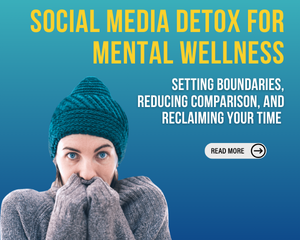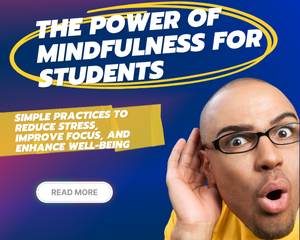Sleep Hygiene for Students: Prioritizing Sleep for Better Grades, Mood, and Overall Health

Are you getting enough sleep? As a student, it can be easy to sacrifice sleep for studying, social activities, or extracurriculars. However, prioritizing sleep is crucial for academic success, mood, and overall health. This article will explore the importance of sleep for students and provide practical sleep hygiene tips to help you get the rest you need to thrive.

The Importance of Sleep for Students
Sleep is not just downtime; it’s an essential process that plays a vital role in various aspects of student life.
- Cognitive Function: Sleep is crucial for cognitive function, including attention, concentration, learning, and memory consolidation. Getting enough sleep allows students to focus in class, retain information, and perform well on tests and assignments.
- Academic Performance: Adequate sleep is directly linked to better academic performance. Students who prioritize sleep tend to have higher GPAs, improved test scores, and increased academic success.
- Mood Regulation: Sleep affects mood regulation and emotional well-being. Sufficient sleep helps students manage stress, reduce irritability, and maintain a positive outlook.
- Mental Health: Chronic sleep deprivation can contribute to or exacerbate mental health issues such as anxiety and depression. Prioritizing sleep is essential for maintaining good mental health.
- Physical Health: Sleep is also crucial for physical health. It supports the immune system, regulates hormones, and promotes overall well-being.
Balancing academics, extracurriculars, and sleep can be challenging, but staying organized helps. Platforms like Cirkled In allow students to track their activities, achievements, and goals, making it easier to manage priorities and maintain a healthy schedule.
The Impact of Sleep Deprivation
Sleep deprivation can have numerous negative consequences for students, affecting both their academic performance and overall health.
- Decreased Academic Performance: Lack of sleep can lead to decreased attention span, difficulty concentrating, impaired memory, and reduced problem-solving skills, all of which negatively impact academic performance.
- Mood Disturbances: Sleep deprivation can result in irritability, mood swings, increased stress levels, anxiety, and depression.
- Weakened Immune System: Insufficient sleep can weaken the immune system, making students more susceptible to illnesses and infections.
- Increased Risk of Accidents: Sleep deprivation can impair reaction time and coordination, increasing the risk of accidents, especially for student-athletes or those who drive.
- Weight Gain: Lack of sleep can disrupt hormones that regulate appetite, potentially leading to weight gain and related health problems.
Practical Sleep Hygiene Tips for Students
Improving sleep hygiene involves adopting healthy habits and practices that promote better sleep.
- Establish a Consistent Sleep Schedule: Go to bed and wake up at the same time every day, even on weekends, to regulate your body’s natural sleep-wake cycle.
- Create a Relaxing Bedtime Routine: Develop a calming bedtime routine to signal to your body that it’s time to sleep. This could include taking a warm bath, reading a book, or practicing relaxation techniques.
- Optimize Your Sleep Environment: Make sure your bedroom is dark, quiet, and cool. Use blackout curtains, earplugs, or a white noise machine if needed.
- Limit Screen Time Before Bed: Avoid screens (phones, tablets, computers, TV) for at least one hour before bed, as the blue light emitted from screens can interfere with sleep.
- Avoid Caffeine and Alcohol Before Bed: Limit caffeine intake in the afternoon and evening, and avoid alcohol before bed, as both can disrupt sleep patterns.
- Get Regular Exercise: Engage in regular physical activity, but avoid intense workouts close to bedtime.
- Take Naps Strategically: If you need to nap, keep it short (20-30 minutes) and avoid napping too late in the day.
Creating a Relaxing Bedtime Routine
A relaxing bedtime routine can significantly improve sleep quality.
- Set a Consistent Bedtime: Choose a bedtime that allows you to get the recommended 8-10 hours of sleep and stick to it as closely as possible.
- Wind Down with Calming Activities: Engage in relaxing activities such as reading, listening to calming music, or practicing gentle yoga or stretching.
- Practice Relaxation Techniques: Incorporate relaxation techniques such as deep breathing exercises, progressive muscle relaxation, or meditation into your bedtime routine.
- Limit Stimulating Activities: Avoid stimulating activities such as work or intense discussions close to bedtime.
- Prepare for the Next Day: Prepare your clothes, pack your bag, and organize your tasks for the next day to reduce stress and promote a sense of calm before bed.
Seeking Help for Sleep Problems
If you experience persistent sleep problems, it’s important to seek help from a healthcare professional.
- Consult a Doctor: If you have chronic sleep issues, consult a doctor to rule out any underlying medical conditions.
- Sleep Specialists: Consider seeking help from a sleep specialist who can diagnose and treat sleep disorders.
- Counseling or Therapy: If stress, anxiety, or depression are affecting your sleep, consider counseling or therapy to address these issues.
Action Step
Evaluate your current sleep habits and identify areas where you can improve your sleep hygiene. Create a relaxing bedtime routine and prioritize sleep for better grades, mood, and overall health. Explore Cirkled In’s wellness resources for additional support and guidance.
Final Thought: Sleep Hygiene 101: Boost Grades & Mood with Better Sleep
Prioritizing sleep is essential for students’ academic success, mood, and overall well-being. By implementing practical sleep hygiene tips and seeking help when needed, students can improve their sleep quality and thrive in all aspects of their lives.
Need more tips on college applications, scholarships, or just how to survive this whole process? Cirkled In has your back—check out Cirkled In resources to help you through every step of your college journey!
Check out Cirkled In and start owning your future today!



0 Comments